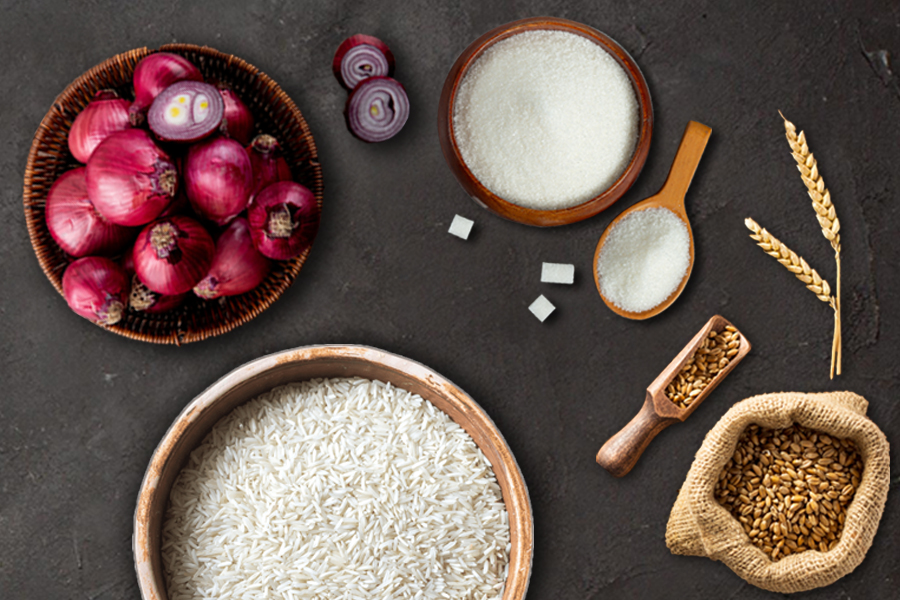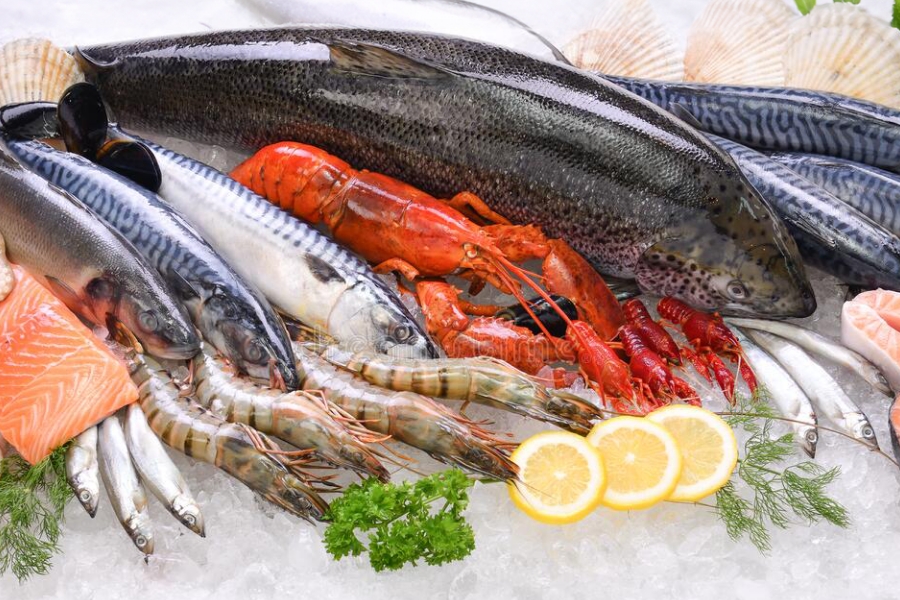The farm bill does not speak about MSP of the commodity
IEG’s Prof. Brajesh Jha believes that the farm bill does not speak anything (directly or indirectly) about the MSP of commodity. However, the fear for its possible removal is unfounded as the National Food Security Act of government requires them to procure some food grain.

IBT: What is your view on how the three bills – “The Farmers Produce Trade and Commerce (Promotion and Facilitation) Ordinance, 2020” “The Essential Commodities (Amendment) Ordinance, 2020”, and The Farmers (Empowerment and Protection) Agreement on Price Assurance and Farm Services Ordinance, 2020 will impact the Indian agriculture sector?
Prof. Brajesh Jha: The FPTCO encourages trade and commerce of farm produce outside the physical premises of market or deemed market notified under various state Agricultural Produce Market legislation. This promotes transparent, barrier free inter-state and intra-state trade of farmers produce. This provides framework for electronic trading and maters connected therewith. Thus, FPTCO aims to provide remunerative price to farmers through competitive alternative trading channels.
The FEPAPA & FSO provides a national framework on farming agreement that protects and empower farmers to engage with agribusiness firms (processors, wholesalers, exporters, large retailers) for farm services and sale of farm produce at a mutually agreed remunerative price (in future) framework in a fair and transparent manner and for matters connected therewith. This act is about written farm agreement with electronic registration and time bound disposition of dispute if any.
With the amendment of ECA, commodities like cereals, pulses, oilseeds, edible oil, onion and potatoes will be removed from the list of Essential commodities. The freedom to produce, hold, move, distribute and supply will lead to harnessing of economies of scale and attract investment (incl. FDI). While liberalizing the regulatory framework, this also safeguards the interest of consumers by regulating the above commodities in case of situation of war, famines, extraordinary price rise, and natural calamity.
However, the installed capacity of a value chain participant and export demand of an exporter will remain exempted from such stock limitation. The extraordinary situation is defined in the amendment act. This initiative will encourage private investment in the post harvest operation. This may bring improvement in technological practices in agriculture.
IBT: Some political parties and analysts have cautioned that the farm bills would lead to massive corporatisation and be inimical to the interests of farmers. What is your perspective on these concerns?
Prof. Brajesh Jha: One of the important reasons for Farm Bills has been the increase of (private) investments in the post harvest infrastructures. This would possibly come from corporate as farmers investment in agriculture has been declining over the years. Hope the corporate investment becomes massive. As per the farmers are concerned, the FEPAPA & FSO regulates farmers’ agreement for a produce or services with corporate. In the most of cases, the corporate will be engaged with a group of farmers rather an individual farmer. The engagement will be as per the “farm agreement” (mandatory and registered electronically) wherein conciliation is the part of agreement. The dispute (if any) will be resolved in a time bound framework at the local level (Sub-division Authority). There seem to be enough provisions to check farmers’ interest; therefore, inimical effect of investment on farmer is a long drawn one. However, these need to be monitored properly.
IBT: A major fear being cited is the possible removal of the MSP regime? How have the MSP provisions fared for farmers over the years? Do you think the same support is sustainable and viable in future as well? Why or why not?
Prof. Brajesh Jha: The farm bill does not speak anything (directly or indirectly) about the MSP of commodity. The fear for its possible removal is unfounded as the National Food Security Act of government requires them to procure some food grain. The rationality however demands that central government’s focus on paddy and wheat in Punjab, Haryana, and similar semi-arid region should be lessened. These states need to grow less of water intensive crops like paddy and wheat. Unfortunately, such crops are being cultivated in semi-arid region, in spite of realization of its inimical effect, as farmers’ continue to get assured price for these commodities.
The MSP of crops have been an important signal to farmers for their land allocation. In the present situation, this also provides price assurance to farmers. Though the MSP is announced for around 25 commodities, the central procurement largely happens for paddy and wheat; that too in the selected region. The procurement and its’ distribution across country have huge social cost. Interestingly, the IEG Working Paper no 379 shows that price support (procurement at MSP) for commodities other than paddy and wheat is more viable. However the government continues to focus on certain regions and commodities (paddy and wheat). There have been many papers and reports that highlight economic and ecological consequences of the same. Therefore gradual reduction in procurement from such regions is desired.
IBT: Given that the majority of Indian farmers have marginal land, how will they be able to ensure that they produce quality produce in bulk as required by companies they sign contracts with? Will farmers have the necessary bargaining power? What are the challenges they could face vis-à-vis contract farming?
Prof. Brajesh Jha: Marginal landowners now account for more than 70%. The on-farm income is often not sufficient for their livelihood and they have to depend on off-farm activities. Since they are often constrained to pay undivided attention to agricultural operation, we cannot expect them to adopt innovative agricultural practices. The contract farming is an option, wherein farmers will be engaged with a sponsor (party) on certain conditions that farm agreement will provide. The farm agreement will be registered as per the FEPAPA & FSO, 2020. The conciliation between the concerned parties is a part of the FEPAPA & FSO.
The challenges faced in contract farming are numerous; these emerge with graduation of activities. The conciliation, resolution of dispute at local level in a fixed time frame is a hall mark of the FEPAPA & FSO, 2020. This needs to be monitored effectively.
IBT: One of the key criticisms against the Essential Commodities (Amendment) Bill, 2020 is that the stock limits for “extraordinary circumstances” are dependent on the agmarket net prices and the conditions of 100% increase in retail prices for perishables and 50% increase for non-perishables are likely to be breached frequently. How can this be prevented to ensure that frequent stock limits are not imposed?
Prof. Brajesh Jha: Your apprehension is right, that price of perishables and non-perishables often reaches “extra-ordinary circumstances” as amendment in ECA 2020 defines. However, such extraordinary circumstances, are frequently reached for specific commodities, not all the commodities included in the present exemption. This will possibly keep post-harvest operators on ‘tenterhooks’. Such fear in post-harvest operators is important, since we are just sufficient in most of commodities mentioned in the act.
IBT: Private sector will be allowed to keep stock up to installed processing capacity, but the same limit will not apply for exports. Is this provision subject to misuse, and how can it be addressed?
Prof. Brajesh Jha: In the “extraordinary circumstance” as per the ECA (Amendment) Bill 2020, the exports contract will not be allowed after establishment of the extraordinary circumstance (in future). In fact, regularity of exports in essential commodities like the above after emergence of “extraordinary circumstance” is not expected. I do not see any problem, if the processing units are allowed to keep stock up to the installed processing capacity even after establishment of “extraordinary circumstance”.
IBT: What should the central and state governments do further to ensure that farmers, particularly small farmers, can benefit from the enhanced market opportunities and freedom of food stocking?
Prof. Brajesh Jha: The legislative changes are often not sufficient for the expected development. The interested (private sector) parties may be provided with suitable land and logistic for establishment of market yards, and similar post harvest infrastructure. Subsequent to realization of development, the marketing opportunities for farmers would increase.
In the commodities like cereals, pulses, oilseeds, edible oil, onion and potatoes, “freedom of food stockings” for the post harvest operators requires significant improvement in productivity of these commodities. The increase in productivity is important as in many of these commodities, we are just sufficient. In a country as that of ours where the majority of people, live in a daily income of less than a dollar, the consumers’ interest should prioritize over the post harvest operators’ concern and in such situation “freedom of food stocking” should be a distant dream.
Brajesh Jha is a Professor of Agricultural Economics in Institute of Economic Growth, Delhi. He has more than 25 years of post-Ph.D research experiences in issues related to Agriculture and Rural Development. His substantial work relates to farming system research; risk, uncertainty and sustainability of agriculture; commodity specific analysis of WTO agreements on agriculture; sources of growth in agriculture; supply chain analysis of some agricultural commodities like litchi; employment in agriculture and rural non-farm sectors; activities allied to agriculture, evaluation of price support and rural works programme in India. His works are presented in books, edited volumes, IEG working papers, economic-dailies, monthlies and more than 50 research articles in professional journals.













Leave a comment